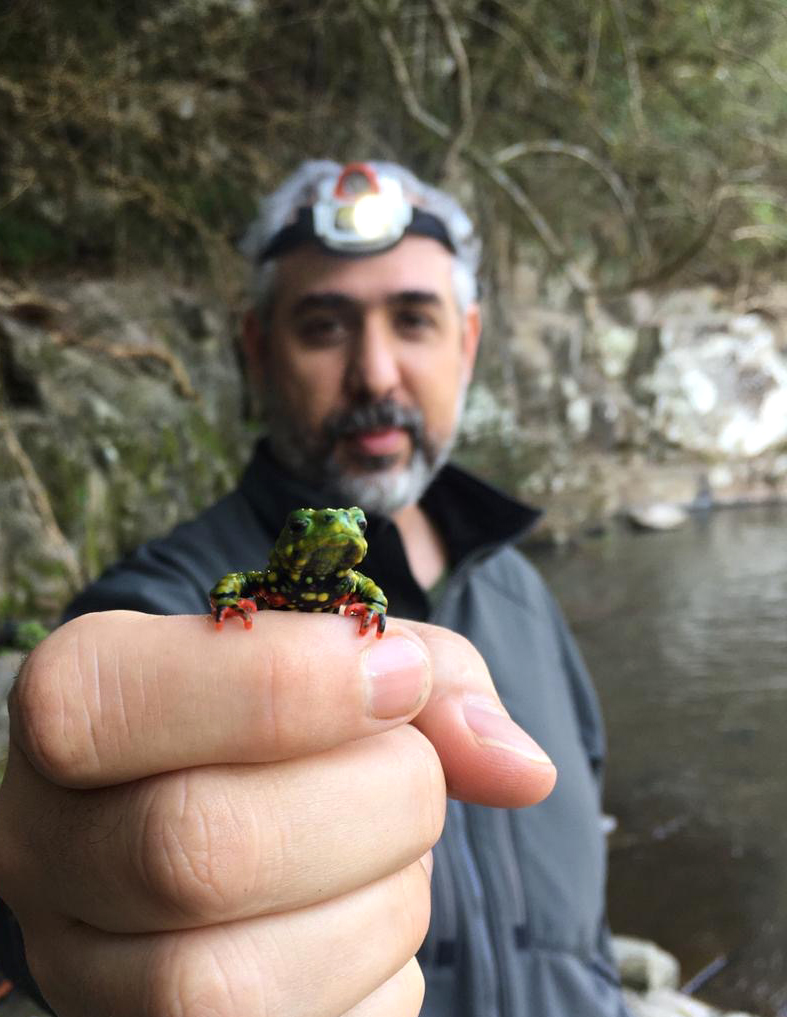
Cargo: Professor Associado I
PhD, Unesp
Dep. Biologia Animal, IB, Unicamp, Campinas, SP
toledolf@unicamp.br
Bachelor in Biological Sciences, Masters and PhD in Zoology at UNESP. Currently Full Professor at Unicamp, teaching Vertebrates for future Biologists and general Biology fot future Geologists and Geographers. Main research topics are: Herpetology, Amphibians, Conservation, Animal Behavior, Wildlife Diseases, Taxonomy, Neotropical Biodiversity.
Amphibians - Conservation, Taxonomy, Natural History, Behavior, Bioacoustics, Diseases
Vertebrates
Field guides and books production
toledo, L. F.; Sazima, I.; Haddad, C. F. B.; Behavioural defenses of anurans: an overview. Ethology Ecology & Evolution (Testo stampato), v.23, p. 1-25, 2011 [ doi:10.1080/03949370.2010.534321 ]
O?hanlon, Simon J.; Rieux, Adrien; Farrer, Rhys A.; Rosa, Gonçalo M.; Waldman, Bruce; Bataille, Arnaud; Kosch, Tiffany A.; Murray, Kris A.; Brankovics, Balázs; Fumagalli, Matteo; Martin, Michael D.; Wales, Nathan; Alvarado-rybak, Mario; Bates, Kieran A.; Berger, Lee; Böll, Susanne; Brookes, Lola; Clare, Frances; Courtois, Elodie A.; toledo, L. F.; Recent Asian origin of chytrid fungi causing global amphibian declines. SCIENCE, v.360, p. 621-627, 2018 [ doi:10.1126/science.aar1965 ]
Scheele, Ben C.; Pasmans, Frank; Skerratt, Lee F.; Berger, Lee; Martel, An; Beukema, Wouter; Acevedo, Aldemar A.; Burrowes, Patricia A.; Carvalho, Tamilie; Catenazzi, Alessandro; De La Riva, Ignacio; Fisher, Matthew C.; Flechas, Sandra V.; Foster, Claire N.; Frías-álvarez, Patricia; Garner, Trenton W. J.; Gratwicke, Brian; Guayasamin, Juan M.; Hirschfeld, Mareike; toledo, L. F.; Amphibian fungal panzootic causes catastrophic and ongoing loss of biodiversity. SCIENCE, v.363, p. 1459-1463, 2019 [ doi:10.1126/science.aav0379 ]
toledo, L. F.; Carvalho-e-silva, Sergio Potsch De; Carvalho-e-silva, A. M. P. T.; Gasparini, João Luiz; Baeta, D.; Rebouças, R; Haddad, Célio F. B.; Becker, C. Guilherme; Carvalho, Tamilie; A retrospective overview of amphibian declines in Brazil's Atlantic Forest. BIOLOGICAL CONSERVATION, v.277, p. 109845-, 2023 [ doi:10.1016/j.biocon.2022.109845 ]